Changing Mindsets - Public Engagement Event 2024
26 June 2024
Muzna Shehzad
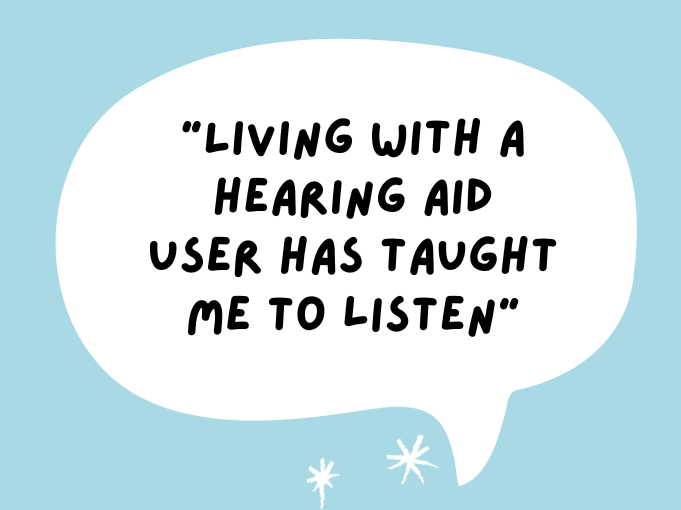
What does it mean to experience your once perfect hearing deteriorate? They say you only realize the value of what you had once it’s lost. But we (clearly being wiser) say, let’s not wait to lose our hearing but instead, take better care of it now. What better opportunity to increase awareness about the importance of hearing health than on World Hearing Day, and who better to celebrate it with than our wonderful research participants with the valuable lived experiences of hearing impairment!
This year, the Hearing Sciences lab had the privilege of celebrating World Hearing Day, as an official part of the World Health Organization’s 2024 events. Our lab’s event followed WHO’s 2024 theme, i.e., changing mindsets. Aligning with the theme, we decided to flip the usual go-to script from reactive to proactive hearing care. We designed the event to focus on the positives of hearing and the importance of hearing care. Our attendees were given a platform to share their personal experiences at the event. The discussions revolved around their experiences of getting their hearing checked, the encouraging factors that led to their hearing checkup, and how using a hearing aid has improved their and their loved ones' lives.
 66.7% of attendees rated 'extremely well' and the remaining rated 'very well’ to getting an opportunity to voice their thoughts during the event.
66.7% of attendees rated 'extremely well' and the remaining rated 'very well’ to getting an opportunity to voice their thoughts during the event.
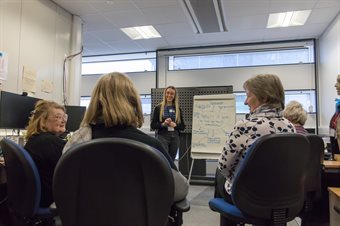 Lucy Robertson (Research Assistant) facilitating a group discussion
Lucy Robertson (Research Assistant) facilitating a group discussion
The event's main objective was to co-create informational material, such as flyers & posters, based on the real-life experiences shared by the attendees. The purpose of these materials would be to emphasize the importance of getting your hearing checked and to encourage others who may be hesitant or unaware of the importance of hearing health and to engage with hearing services. In time, we hope to distribute these flyers among communities which are most likely to experience disparities in hearing health, such as ethnic and racial minorities (Nieman et al., 2016; Taylor et al., 2023), including signposting them towards resources to help them to take control of their hearing health.
The event featured engaging discussions that offered valuable insights. Participants shared how hearing aids have impacted their life.
There were also family members in attendance, and it was impactful to hear their experiences of living with someone who has a hearing impairment. One of the attendees shared: "Living with a hearing aid user has taught me how to listen."
During the discussion, there was an emphasis on the importance of including hearing checks as part of routine health checkups. To illustrate this, participants highlighted the analogy of regular dental check-ups and proposed that hearing checkups should similarly be integrated into standard health assessments.
The event emphasized the advantages of good hearing, such as enjoying the sound of rain and birds singing, participating in group gatherings, and socializing. Attendees also discussed how new technology is assisting them in noisy environments like pubs and family gatherings.
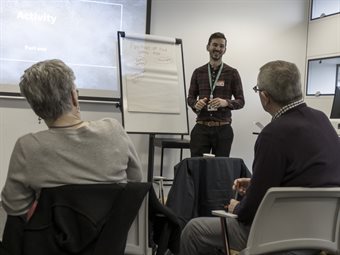 Dr Jack Holman (Medical Research Foundation Fellow) facilitating a group discussion
Dr Jack Holman (Medical Research Foundation Fellow) facilitating a group discussion
Keeping in mind our goal of developing informational material, we wanted to hear how the illustrations used on current hearing-related posters made our attendees feel (Yes, the old person in the depths of despair getting shouted at by someone using a megaphone turned out to be unpopular. Who would've thought?). Furthermore, our incredible attendees shared ideas for illustrations that might help encourage young people to get their hearing checked!
Photography exhibition. Continuing with last year's exhibition, we provided the platform for our research panel to express their hearing experience through the art of photography. This year's event theme for the photography exhibition was ‘considering the positives of your hearing.'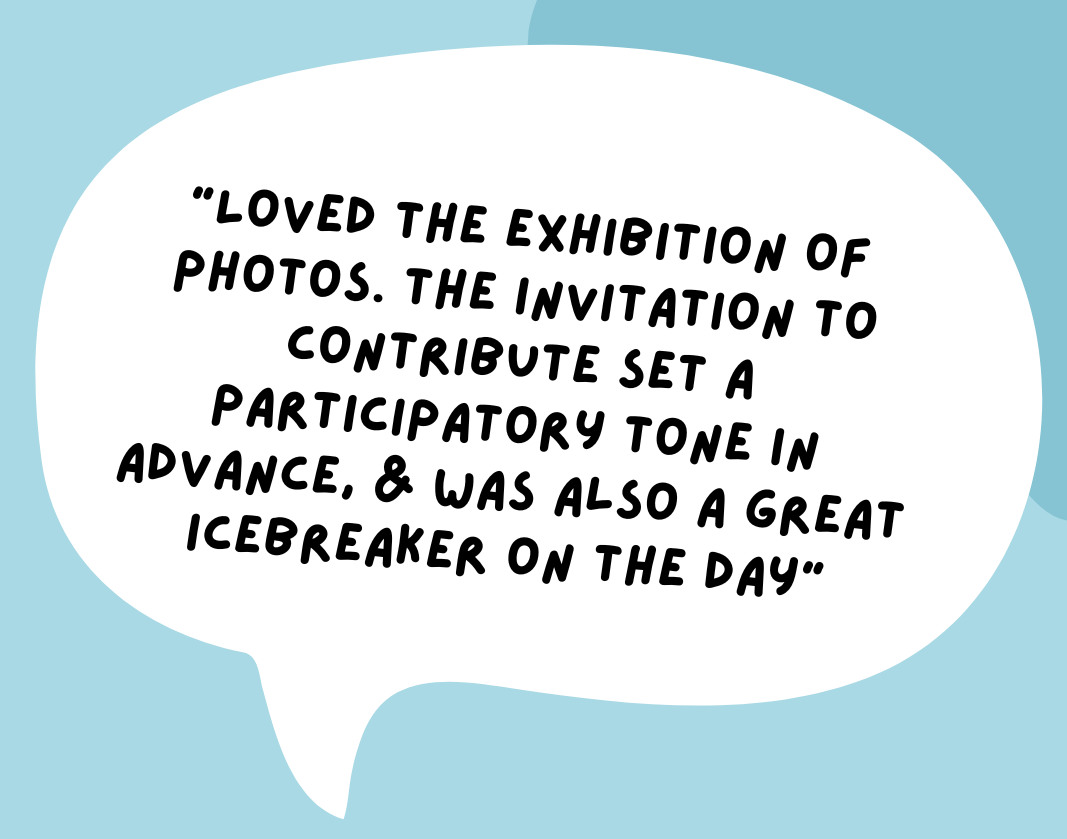 The submissions creatively captured moments ranging from the use of sound at protests to the role of hearing aids when playing the piano. These submissions were included in this year's thank you cards for our attendees as we are always very grateful for their valuable contributions!
The submissions creatively captured moments ranging from the use of sound at protests to the role of hearing aids when playing the piano. These submissions were included in this year's thank you cards for our attendees as we are always very grateful for their valuable contributions!
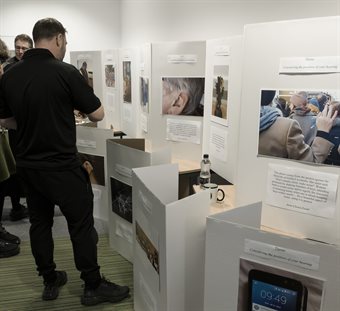 Attendees enjoying the Photography Exhibition during refreshments
Attendees enjoying the Photography Exhibition during refreshments
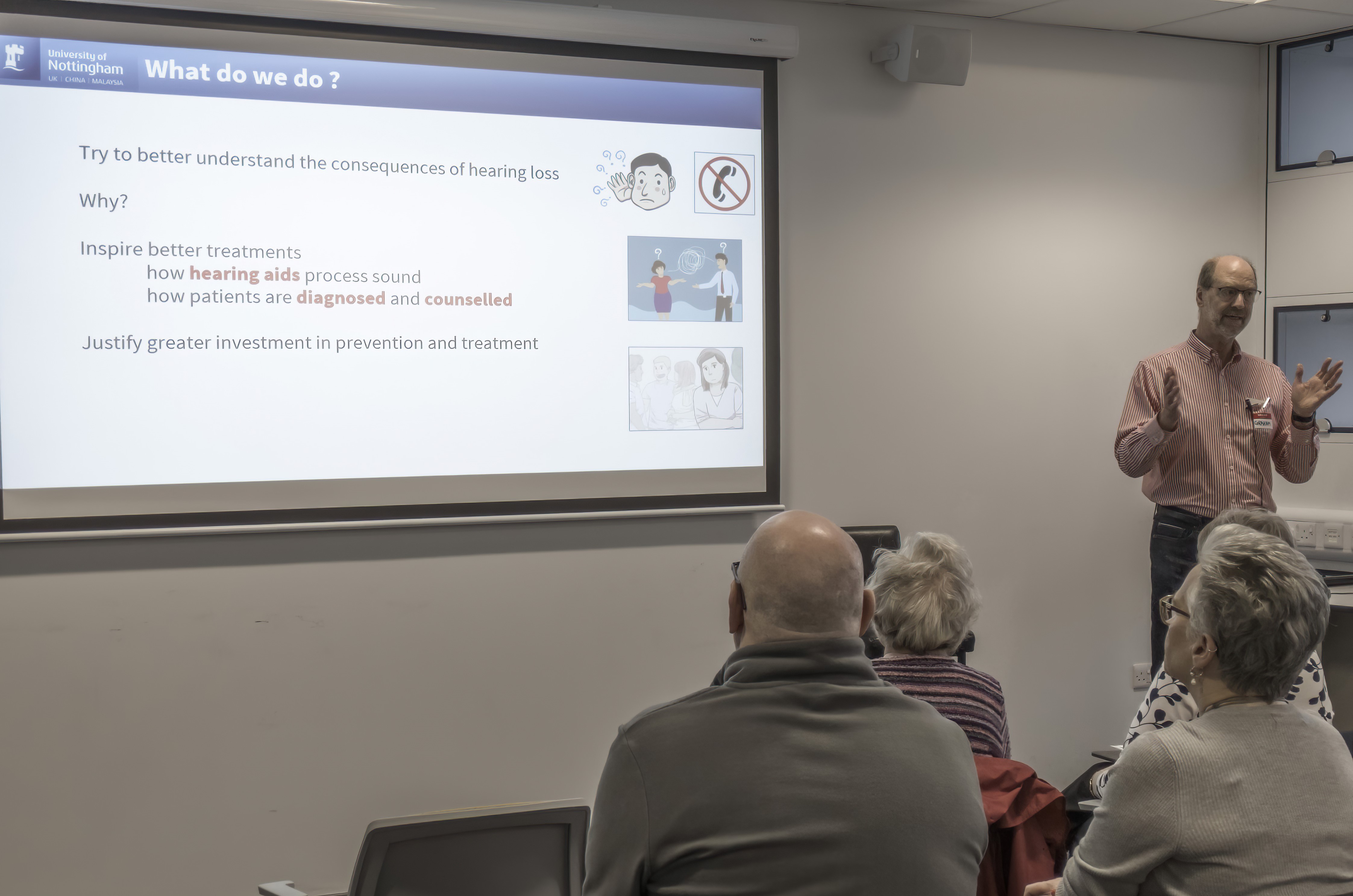 Professor Graham Naylor, our lab director, summarized our lab’s diverse research work that covers a range of multifaceted impacts of hearing impairment
Professor Graham Naylor, our lab director, summarized our lab’s diverse research work that covers a range of multifaceted impacts of hearing impairment
Conclusion. We are at the stage of collating the information contributed by the attendees regarding content & visuals and we're excited to share the material that comes out of it. In short, we're enthusiastic to play our little role in changing mindsets when it comes to hearing health.
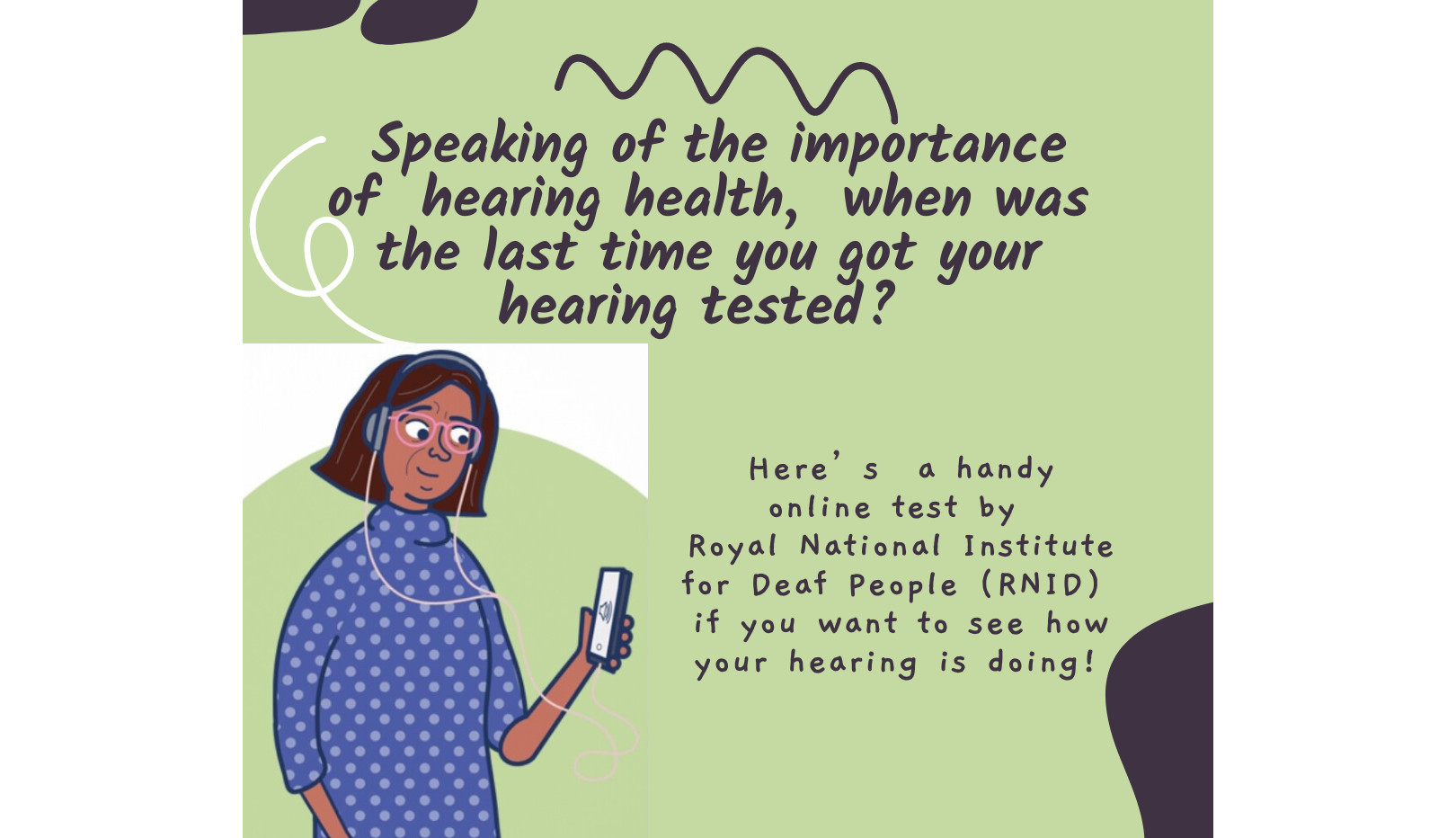
Click here for a quick Online hearing test
Stay tuned for more exciting public outreach work by the Hearing Sciences (Scottish Section) lab!
References:
- Nieman, C. L., Marrone, N., Szanton, S. L., Thorpe, R. J., & Lin, F. R. (2016). Racial/Ethnic and Socioeconomic Disparities in Hearing Health Care Among Older Americans. Journal of Aging and Health, 28(1), 68–94. https://doi.org/10.1177/0898264315585505
- Taylor, H., Dawes, P., Kapadia, D., Shryane, N., & Norman, P. (2023). Investigating ethnic inequalities in hearing aid use in England and Wales: A cross-sectional study. International Journal of Audiology, 62(1), 1–11. https://doi.org/10.1080/14992027.2021.2009131